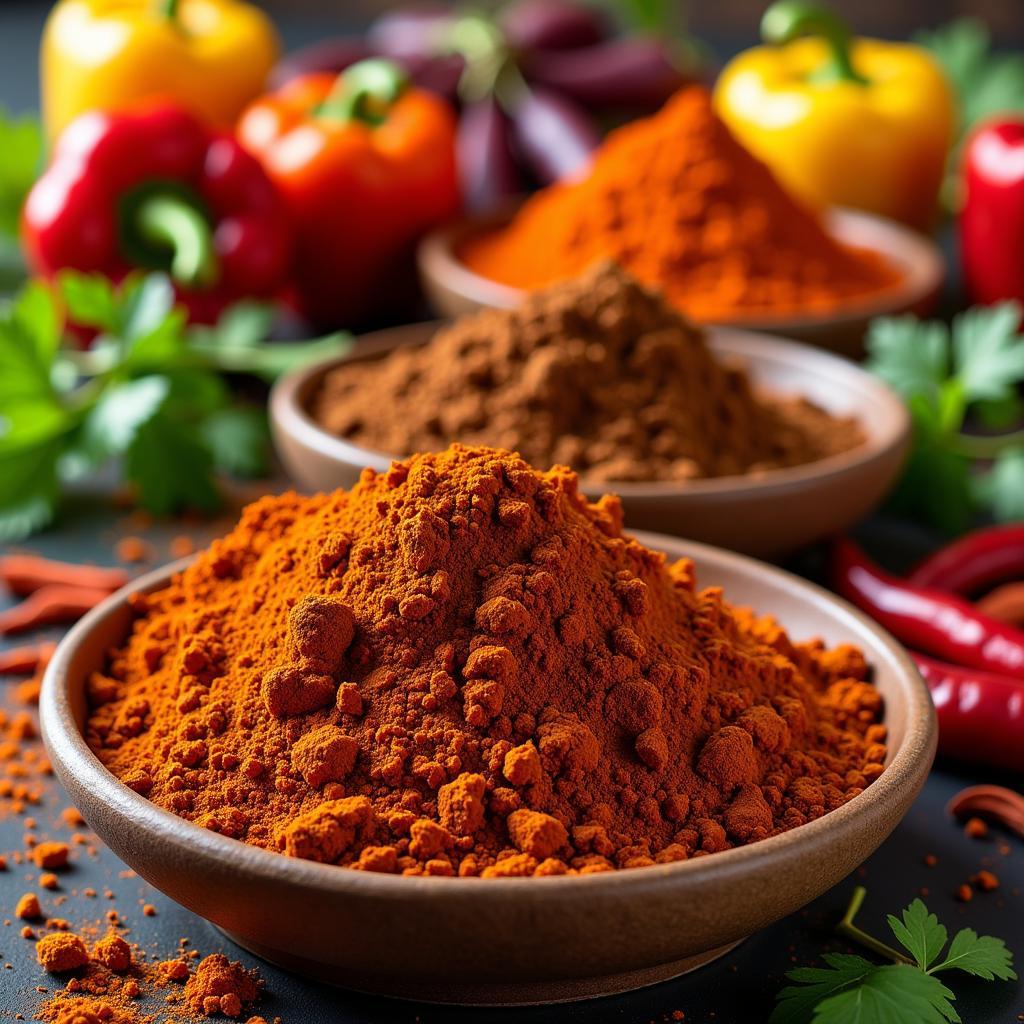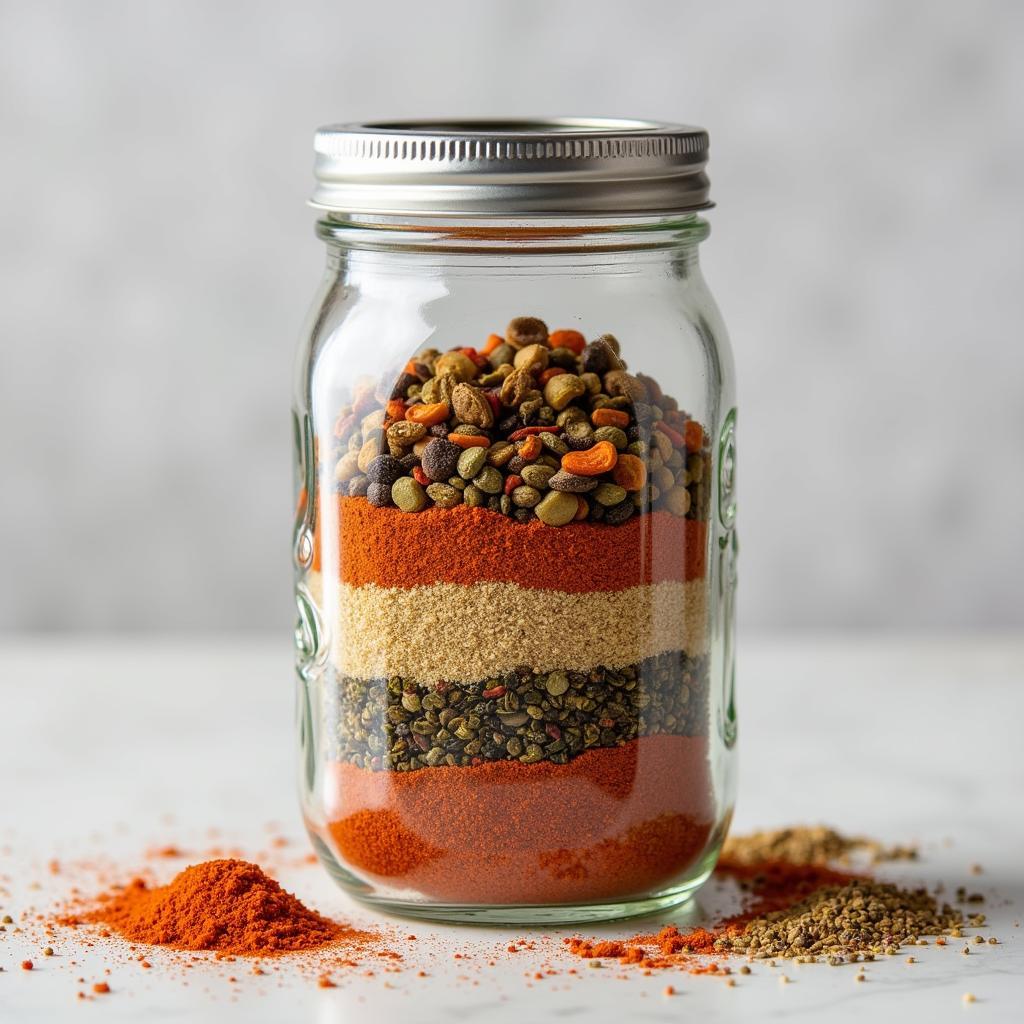Food – it’s the universal language of love, comfort, and celebration. But even the most basic ingredients can transform into culinary masterpieces with the right touch of magic. That magic, my friends, lies in the world of Best Food Seasonings.
Whether you’re a seasoned chef or a kitchen novice, understanding how to use seasonings can make all the difference. From adding depth and complexity to highlighting natural flavors, the perfect seasoning blend can turn a bland dish into a symphony of taste.
Unlocking Flavor: Exploring the World of Seasonings
Before we dive into the “best of” list, let’s unravel the mystery behind these flavor enhancers. Seasonings, in their purest form, are dried herbs, spices, or other ingredients that add another dimension to your food. They don’t just add saltiness – they bring warmth, spice, earthiness, and a whole spectrum of tastes to tantalize your palate.
Think of seasonings as the artist’s palette, with each spice and herb representing a different color. Just like a painter carefully blends hues to create a masterpiece, so too can you experiment with various seasonings to craft culinary works of art.
Essential Seasonings Every Kitchen Should Have
Building a well-stocked spice rack is the first step to seasoning mastery. Here are some must-haves that will lay the foundation for countless delicious meals:
- Salt and Pepper: The dynamic duo, essential for enhancing flavors in almost every dish.
- Garlic Powder and Onion Powder: Concentrated flavor bombs that add savory depth to soups, stews, and rubs.
- Paprika: This versatile spice comes in sweet, smoked, and hot varieties, adding color and a hint of sweetness.
- Dried Oregano and Basil: Italian staples that bring warmth and aroma to pasta sauces, pizzas, and Mediterranean dishes.
- Cumin: A warm and earthy spice often used in Mexican, Indian, and Middle Eastern cuisines.
- Chili Powder: A fiery blend that adds a kick to chili, tacos, and anything needing a little heat.
Matching Seasonings to Your Culinary Adventures
The beauty of seasonings lies in their versatility. Different cuisines often rely on specific flavor profiles, and choosing the right seasonings is key to achieving authentic tastes.
- For a taste of Italy: Embrace the herbaceous trio of oregano, basil, and thyme. Add a pinch of red pepper flakes for a touch of heat.
- Spice up your Mexican fiesta: Cumin, chili powder, smoked paprika, and oregano are your go-to choices.
- Embark on an Indian culinary journey: Garam masala, turmeric, cumin, coriander, and ginger are essential for creating fragrant curries and flavorful rice dishes.
 Mexican Food Seasonings
Mexican Food Seasonings
Beyond the Basics: Advanced Seasoning Techniques
Once you’ve mastered the basics, elevate your seasoning game with these tips:
- Toast your spices: Before grinding or using whole spices, toast them in a dry pan to release their aromatic oils and enhance their flavor.
- Bloom your spices: Similar to toasting, blooming involves briefly cooking spices in oil or butter at the beginning of cooking to unlock their flavors.
- Create your own blends: Experiment with different combinations of spices to create unique flavor profiles that reflect your personal taste.
“The key to successful seasoning is balance. Don’t be afraid to experiment, but always start small and taste as you go.” – Chef Marie Dubois, renowned culinary instructor and author of “The Art of Seasoning.”
Bringing It All Together: Seasoning for Success
Mastering the art of using the best food seasonings is a journey, not a destination. Embrace the process of discovery, experiment with different flavor combinations, and don’t be afraid to make mistakes. With a little practice and a lot of passion, you’ll be creating dishes that are bursting with flavor and worthy of praise.
FAQs About Food Seasonings
Q: What’s the difference between herbs and spices?
A: Herbs are the leaves of plants, while spices are derived from other parts like seeds, roots, bark, or berries.
Q: Can I substitute fresh herbs for dried ones?
A: Yes, but keep in mind that dried herbs are more concentrated. A good rule of thumb is to use one-third the amount of dried herbs for fresh.
Q: How long do spices last?
A: Whole spices can last for several years if stored properly in airtight containers in a cool, dark place. Ground spices have a shorter shelf life of about 6-12 months.
Q: How can I tell if my spices are still good?
A: If your spices have lost their vibrant color or aroma, it’s time to replace them.
Q: What are some common seasoning mistakes to avoid?
A: Over-salting, using too much of one spice, and not tasting as you go are common pitfalls. Remember, you can always add more seasoning, but you can’t take it away!
 Homemade Seasoning Blend
Homemade Seasoning Blend
For more culinary inspiration and to explore a world of dehydrated food options, check out our articles on dehydrated food companies, American made food dehydrator, and hermit crab food recipes. If you’re looking for specific cuisine ideas, delve into our pieces on Mexican food for Lent or explore our comprehensive comfort foods cookbook.
Need assistance on your seasoning journey? Contact us at Phone Number: 02437655121, Email: [email protected], or visit us at 3PGH+8R9, ĐT70A, thôn Trung, Bắc Từ Liêm, Hà Nội, Việt Nam. Our dedicated customer support team is available 24/7 to help.